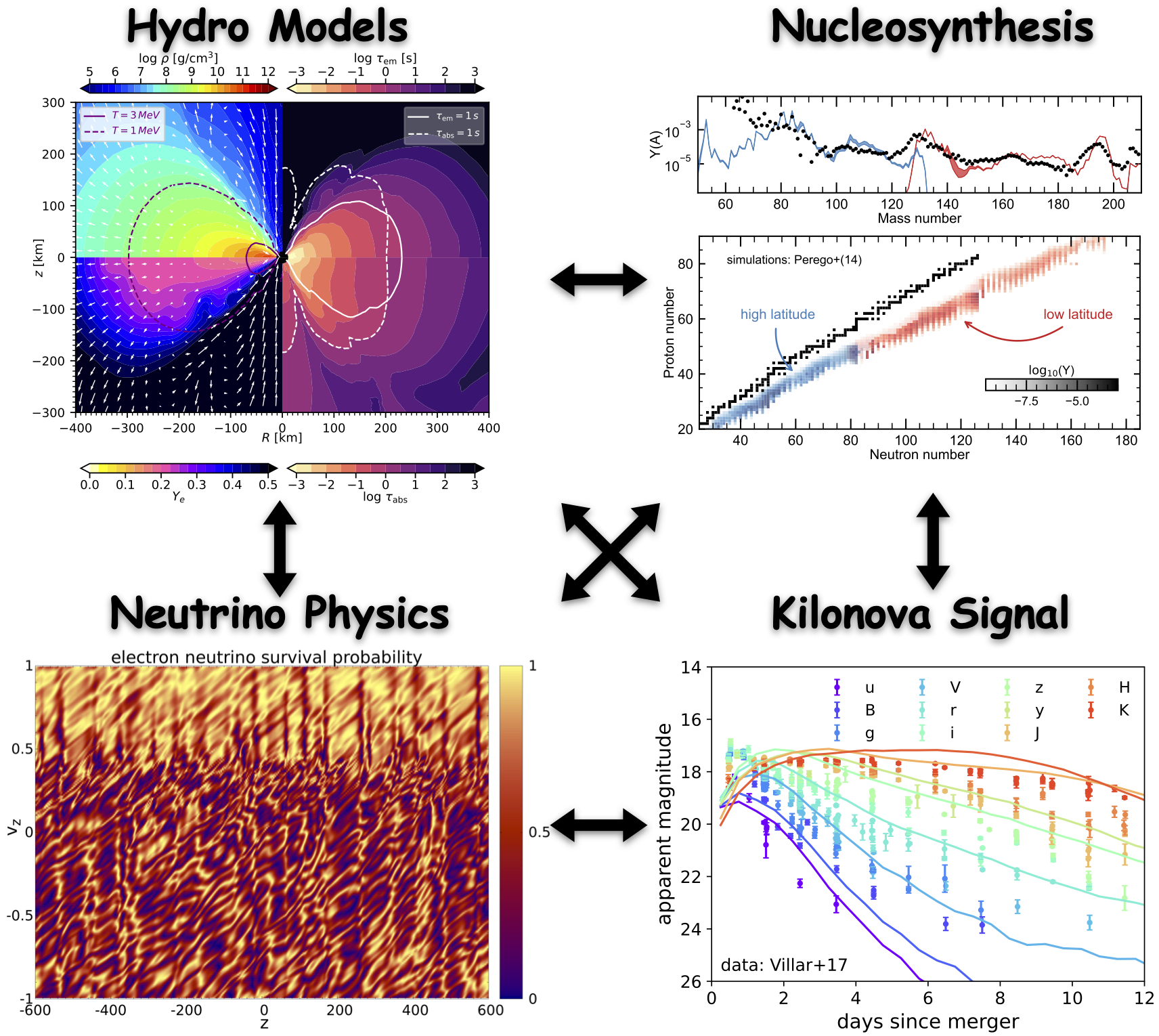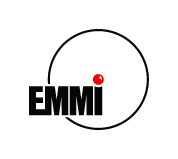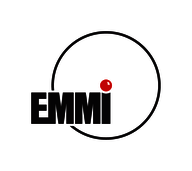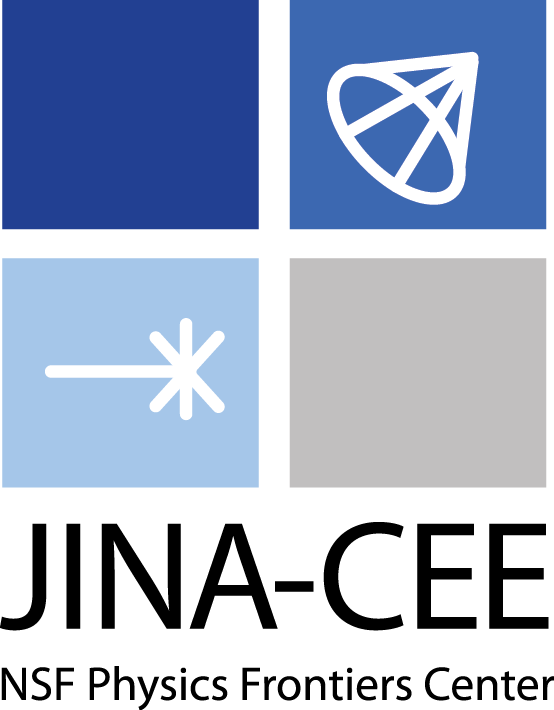
The follow-up analysis of the binary neutron star merger event GW170817 suggests that a large fraction, if not the majority, of the outflow observed as a kilonova was not ejected at the merger but during the secular evolution of its remnant. Theoretical models of the remnant and its ejecta are particularly challenging as they call for a profound understanding of the long-term evolution of and interactions between different ejecta components, turbulent viscosity, neutrino transport, and neutrino flavor oscillations. In order to reliably interpret future observations of GW events and their electromagnetic counterparts, these aspects, as well as their uncertainties, must be properly integrated in nucleosynthesis and kilonova calculations.
The workshop will bring together experts from the four areas hydrodynamic simulations, neutrino-flavor physics, r-process nucleosynthesis, and kilonova modeling. The goal is to identify the main shortcomings of current models and to discuss strategies for how to propagate modeling uncertainties into r-process abundances and kilonova predictions, thereby improving models in a way to maximize the scientific output of future multi-messenger observations of neutron star mergers.
This workshop is funded by the ExtreMe Matter Institute EMMI and the International Research Network for Nuclear Astrophysics IReNA.






